Adventure Capitalist’s Notes: Hong Kong
Hong Kong has built its reputation as a city famous for transacting business. Â Both an active market itself, and the great gateway to China, Â the city boasts a fantastic cast of commercial characters. Â During our time there, I met with a few old friends who are working on various ventures, in capacities ranging from entrepreneurial chief executive to dogged analyst in the largest transactions the global financial markets have ever seen.
Robert Neville – California Wine Supply
Rob, an eminent entrepreneur, rugby player, Brown alum, and childhood friend spends his time developing a business, California Wine Supply. He imports wine from our native California to the Hong Kong market. Â Initially planning on selling to mainland China, Rob has chosen to start with the local market as a healthy foundation for the business. Â Now his considerations range from logistics (how does one transport 20 cases of temperature-sensitive wine across the Pacific Ocean), to judging local tastes, to engineering price-points palatable for restaurants and retail, and securing available capital. Â Luckily, regulations are on his side, as the import taxes on wine in Hong Kong have dropped considerably recently, allowing him a fantastic opportunity to build a new market. Â What’s more, the most natural way he saw to market himself – social media – has become the darling medium of the consumer world.
Cool, calm, and collected, Rob serendipitously found himself in the position of the Social Media King of Hong Kong wine by releasing admittedly hilarious wine tasting videos from his time in Hong Kong and Shanghai. Â Furthermore his Twitter feed attracts followers of the Hong Kong wine scene, and earned him a spot as an organizer of the Hong Kong Tweetfest and as the social media guru for upcoming wine shows in city.

What kind of an appetite will Hong Kong, and eventually mainland China, have for California wine?  In a market dominated by French vineyards, it will take a bold character like Rob to innovate and produce a product for sophisticated consumers.  Some prototypes now include blended varietals inspired by European tastes from regions in California previously wedded to wines consisting of single grape stocks.  Packaging too, he claims, could use a revamp, as that’s how most buyers, in conjunction with price, choose a wine.  Imagine a single piece of duct tape in place of the front label:  title optional, with only regulatory labeling on the rear.  Whatever the market demands, he’ll no doubt imagine and engender a set of imaginative solutions.
Mr. Josh Z. – Banker Extraordinaire
Mr. Z has quite a different approach to his career than Mr. Neville.  Mr. Z worked tireless summers in New York and Hong Kong during Brown University summer breaks at the finest investment banks in the business.  Upon graduating, he turned down admission to Stanford’s graduate school to take a job with China International Capital Corporation (en – ä¸æ–‡), the Beijing-based state-owned investment bank that co-underwrites IPOs for major Chinese corporations.  There, under a strenuous schedule, he worked on the initial public offering of the Agricultural Bank of China, which, if the bank chooses to exercise their full offering of shares, will be the largest IPO in history.
Completing that, he was poached by a global top-tier investment bank to work in Hong Kong under a senior advisor responsible for taking some of the most venerable firms in Silicon Valley (like Amazon, Google, and Cisco) public. Â At this new bank, he takes responsibility for a swath of clients in the technology and media space, most of which are Chinese variants of western Internet super-phenomenons. Â Curiously, these firms choose to go public as the successful firms of Web 1.0 did, while the largest western players in Web 2.0 tend to get acquired or stay private.
We met at his offices in Central and hustled over to a street of Lan Kwai Fong. Â There, we sat down at the Luk Yu Tea House, one of the last surviving in Hong Kong with interiors ornately decorated in the Old Shanghai style.
After ordering an array of mouth-watering dishes, he began to describe the professional life that was now his own.
His schedule:
- Monday to Wednesday: Work in office from 10:00 am to 5:00 am
- Thursday: Fly early morning to Beijing to meet with clients; fly to Shanghai in evening.
- Thursday night: No sleep – prepare meeting materials for the clients in Shanghai.
- Friday: Meet with Shanghai client; fly to Hong Kong in evening
- Saturday and Sunday: In the office from 1:00 pm to midnight, catching up on sleep while not at work
What exactly does he do during these many working hours? Â Model financial statements, produce pitch books, proofread, prepare filings with regulators, and author massive investment prospectuses. Â As we spoke, he punched away on his Blackberry, communicating with high-quality, highly confidential printers in Hong Kong and on the mainland whom the firm would pay $100,000 to print 10,000 three fingers books. Â Some of these IPOs, he mentions, generate $1,000,000 in fees for printers alone. Â “I should be in the printing business,” he quips. Â Quite amazingly, these printers will reprint the prospectuses again and again for the bank if any changes need to be made in the text.

He admits that it’s putting a tremendous amount of stress on him, letting his body and social life deteriorate. Â He flies first class on Cathay Pacific every week, and stays at the nicest five-star hotels in the cities where he travels, but he couldn’t care less about those perks. Â Without much entrepreneurial freedom, and mostly fighting exhaustion, he quizzes me on start-up life and on getting involved with high-tech ventures. Â While tense to witness, Mr. Z is admittedly making history, taking gigantic Chinese banks public and participating in the IPOs of the most notable Chinese tech companies. Â It’s bankers like Mr. Z who empower entrepreneurs, their customers, and their users by providing providing the ultimate liquidity of a public stock offering. Â China needs people like him, supporting these entrepreneurs in high-technology, high risk ventures. Â Where he will go next? To the start-up side, or to the investment buy-side? It is yet to be seen, though we will no doubt revisit him on AsiaWheeling 3.0 as he continues to seize his destiny.
Ben Rudick – Doing Good and Doing Well
I originally met Mr. Ben Rudick by inviting him and Mr. Nathan Wyeth to join Woody and me for dinner in Tokyo at the delicious Korean yakiniku restaurant Ton Ton Tezi. Â At this restaurant, the plate that fries the meat is slanted, with meat upstream and cabbage at the bottom of slant, thus coating the vegetable in delicious fatty oil. Â In Hong Kong, we met for lunch, and I snapped this portrait of him outside his office in central, joking that he needed a photo for the back of his book cover.
At the time, Ben and Nathan were working for the Shoenfeld Foundation identifying projects for investment in the social enterprise space. Â Now in Hong Kong, Ben is focusing much of his effort on being director of the program for “Empowering Chinese Social Enterprise Leaders” (ECSEL) This fantastic program provides full scholarships in the U.S. for young Chinese social entrepreneurs to develop their businesses and engender positive change. Â The program was launched at the Clinton Global Initiative in 2009. Pictured below are two of the 30 scholarship winners, Jingji Zhang and Wang Jun, next to Ben Rudick, Bill Clinton, and Bill Shoenfeld (of his eponymous foundation).
Ben’s efforts continue to grow in the social enterprise space, with future possibilities for investment and further cultivation of Chinese social entrepreneurs. Â Graciously, Ben provided some invaluable advice for my own ketchup business over don-katsu lunch from the delicious cafeteria in ThreeSixty (more below), and for this I am forever grateful.
Beyond these fascinating characters, there are a few other phenomena in Hong Kong worthy of an Adventure Capitalist mention.
Pick Your Poison – Signing with Currency Choice
My blue polo shirt became stained, ripped, and eventually lost at some point on AsiaWheeling and thus I was happy to visit my favorite Japanese clothing retailer, Uniqlo, to acquire an identical one to replace it. Â At the cashier, I was surprised to see a receipt in which I was to circle which currency was preferable to pay with my credit card- U.S. Dollars or Hong Kong dollars. Â Before this, I had not come across this, and wondered what the value was in giving the customer this choice.
The Hong Kong Dollar is soft-pegged to the U.S. dollar, so the discrepancy in values would not be great, though I wonder if credit card issuers may add fees to purchases in foreign currencies. Â Thanks to CitiBank, this was not a concern, though I encourage more hypotheses for why this system developed.
A Day at The Races
Horse racing, the only legal form of gambling in Hong Kong remains phenomenally popular among the people of the city. Â Cabbies have their favorite horses and study the odds published in the sporting press, while expats attend the races to socialize and punt on random horses, and all over the world gamblers can place bets thanks to the advanced online betting system set up by the Hong Kong Jockey club which organizes the races.
I was lucky enough to be invited by a group of expats to watch a race in Happy valley, which was quite a visual experience. Â Elderly ladies with FM radios gather around each other to chat, while middle aged men swill skol beer and roll up their pantlegs. Â All in all, it was most definitely a spectacle to see these beasts race, as well to consider the races a a popular point for socializing among the many expats, many of them British.
Brand and Retail Evolution
Hong Kong has also gained in retail sophistication since my time studying there, and while not all the below firms are new to the city, they warrant a mention.
Aesop, a Aussie line of skin care and cosmetics that AsiaWheeling highly regards has expanded to Causeway Bay.  Their scientific  presentation, black, green and white color scheme, and codified simplicity of packaging make them a joy to behold.  The brand respects consistency as the aesthetic extends from the product, to the marketing collateral, to the retail store design.  While much less complex and developed, they rival Apple in their ability to immediately convey calming value to the onlooker.
Another is Greenfingers in central, which provides plants and accessories for home gardening with a striking aesthetic.  With all the growth in urban farming, I’m curious to know trends about houseplant purchases in cities worldwide.  I remember colleagues of mine investing in Christian Tortu designed indoor plants at Tokyo Midtown and being quite curious about the market for these beautiful inanimate green pets.
Great Food Hall, City Super and ThreeSixty are three phenomenal gourmet grocers which have also continued to grow. Â Focusing on the highest quality products and shopping experience for a market increasingly conscious about a natural and organic origin of their foods.
Ketchup Adventure
Finally, it behoves me to mention much of my time in the city was spent researching how to ply the local market for the gourmet ketchup which my partners and I market primarily in the states.  Serendipitously, ketchup, a cantonese word (茄æ±-khe tsÉp), actually originated in the regions surrounding Hong Kong as a fermented fish sauce.
This experience involved a wonderful creative session at a local print shop to produce our pitch book, as well as meetings with retailers and distributors which led me all across the city.

From riding the trams of Admiralty, to meandering the midlevels, to late-night meetings in private clubs while wearing Sri Lankan sandals (the only shoes I owned), the adventure was a fantastic success in dipping into our first market abroad.


















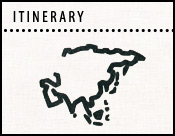
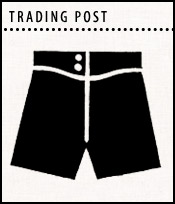
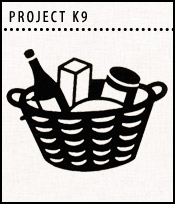
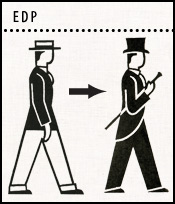
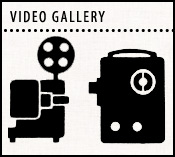
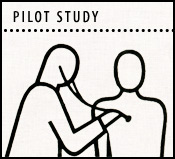
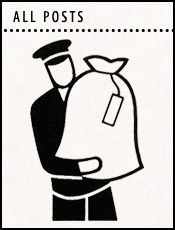





Comments
Wow.
I feel like a prehistoric slug sinking in to primordial sludge next to these highly evolved, social media whizzes in the jetstream!!
These were amazing stories.
Wonderful array of experiences and people. Have you been to the new Elements? It’s a premier retail therapy outlet in Kowloon built on reclaimed land. The mall is divided into zones based on the earths’ elements. Its Peculiarly, “the mall has ten washrooms, outside which there is a lobby with sitting area and magazine rack. Management said these are conceived for men “to wait for their girlfriends outside the washroom”, providing “a decent and comfortable place for them to wait while they powder their nose.”” – Wiki.